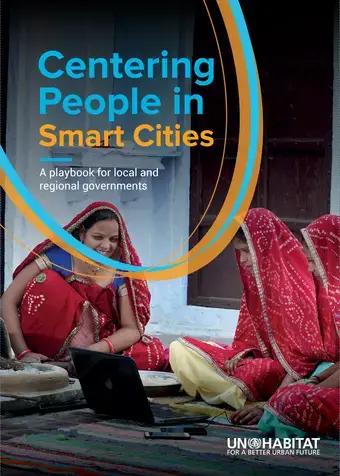
Country Profile
Azerbaijan strategically bridges Asia and Europe, pivotal for energy and transportation, fostering rapid economic growth since 1991, but with risks due to heavy reliance on petroleum resources.
With increasing urbanization, driven by economic growth and government policies, showcasing growth of modern, dynamic cities with well-developed infrastructure and a high standard of living, but also challenges such as congestion and environmental degradation, which the government is addressing through infrastructure investments and sustainable planning.
The country’s current economic policies are aimed at transitioning from a heavy reliance on oil and gas production to a sustainable, diversified economy with a vibrant non-oil sector and a balanced approach to national development reflect the country’s commitments to the 2030 Agenda for Sustainable Development of the United Nations.
OUR WORK
National Urban Policy (NUP) is a coherent set of decisions via government led actors that coordinates various actors towards a common goal and vision for long term, resilient urban development.
UN-Habitat continues collaborating with Ministry of Land, Infrastructure and Transport (MOLIT) of Republic of Korea in supporting development of National Urban Policies (NUP):
- Phase 1 (2017~2022): Integrating people-centered smart city approaches in NUP for Islamic Republic of Iran, Republic of the Union of Myanmar, and Niger State, Nigeria.
- Phase 2 (2022~2026): Scaling up people-centered smart cities through National Urban Policy: Republic of Azerbaijan, Kingdom of Cambodia, Arab Republic of Egypt, Republic of Mozambique, and Republic of Paraguay
UN-Habitat’s People-Centered Smart Cities Approach (PSCA) promotes deployment of technology and innovation to ensure sustainability, inclusivity, prosperity and human rights in cities By creating a framework that centers people in smart city development, the delivery of policies and programmes can be more inclusive and responsive to their needs.
Korea-funded NUPP seeks to integrate PSCA into NUP to promote and achieve transformative, inclusive, green, productive and resilient urban development.
objective
This programme aims to integrate a people-centred smart cities approach into National Urban Policies (NUPs) through collaboration between UN-Habitat, the Ministry of Land, Infrastructure and Transport (MOLIT) of the Republic of Korea, and Azerbaijan’s State Committee for Architecture and Urban Planning (SCUPA).
Project document
Project Title |
National Urban Policy Programme, Phase Two: Scaling Up People-centered Smart Cities through National Urban Policy |
|---|---|
| Country | Republic of Azerbaijan |
| Overall Objective | To promote a people-centred smart cities approach through National Urban Policies in collaboration with MOLIT of Republic of Korea |
| Key Ministry | State Committee for Architecture and Urban Planning (SCUPA) |
| Internal Stakeholders | Lead organizational Unit: Policy, Legislation and Governance Section
Implementing Unit: UN-Habitat project office in Azerbaijan, supported at interim by UN-Habitat Inter-Regional Advisor for Eastern Europe and Central Asia Collaborating Units: Urban Practices Branch, Global Solutions Division/ External Relations, Strategy, Knowledge and Innovation Division, Programme Development Branch, HQ/ Regional Office for Africa, other Regional Offices (ROAP, ROAS and ROLAC) |
| External Stakeholders | MOLIT of the Republic of Korea
NUP Technical Advisory Committee in the Republic of Azerbaijan: composed of State Committee for Urban Planning and Architecture (SCUPA) and Ministry of Digital Development and Transport (chair function) Ministry of Internal Affairs, Ministry of Economy, Ministry of Finance, Ministry of Emergency Situations, Ministry of Energy, Ministry of Education, Ministry of Healthcare, Ministry of Agriculture, Ministry of Ecology and Natural Resources, Ministry of Culture, Ministry of Justice, Ministry of Labour and Social Protection, Ministry of Youth and Sports, State Statistics Committee and other relevant Ministries and State Committees, and selected representatives from local government (AXCOM) and Presidential Administration. In addition, representatives of local and international universities, academia, think tanks and others; national and international specialists and experts as well as civil society representatives will be invited based on thematic engagement. |
| Country Contact | Duk Hwan Son: Senior Programme Officer, UN-Habitat (duk.son@un.org)
Anna Soave: Programme Management Officer, UN-Habitat (anna.soave@un.org) |
| Budget | USD284,000
*Subject to the exchange rate, further fund mobilization |
| Duration | November 2022 – October 2026 (48 months) |


